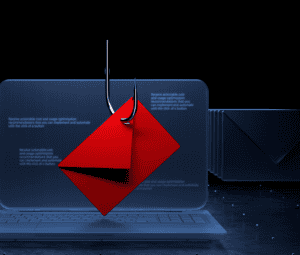Email—a core communication tool—has become vital in today’s world, where digital communication is essential. Its security is crucial for guarding a firm’s digital resources and poses a significant risk if not adequately safeguarded. Protecting your firm goes beyond installing the latest antivirus software. This demands a holistic approach, from incorporating advanced protection steps to promoting a culture of cybersecurity awareness. Partnering with the best cybersecurity services ensures your business has the tools and strategies to safeguard sensitive communications, minimize risks, and maintain trust.
What is Email Security?
“Email security” is a significant part of current business functions, which protects communications from unauthorized access, loss, or compromise. This involves various measures to secure email accounts and their contents, including text, documents, images, or videos.
Since the diverse media can be sent via email, the risks are multifaceted, from malware infections to data breaches. This results in unauthorized access that can lead to sensitive information being stolen or compromised, elevating business risks. By prioritizing email security, your operations, financial stability, and customer relationships stay protected, ensuring your long-term success.
Why Email Security is Critical for Business Success?
Direct financial losses are only the start, as the consequences can cause operational disruptions, legal complications, and irreversible damage to your firm’s reputation. Advanced email security protocols form the backbone of a robust cybersecurity strategy, ensuring the continuity of business operations and preserving brand integrity. Effective email security involves a multi-faceted approach comprising encryption, spam filtering, and advanced mechanisms to detect threats. By giving priority to and establishing email security, businesses can considerably reduce data breach and cyberattack risks against their digital resources and financial interests while protecting customer trust.
Benefits of Email Security
Email security involves a range of practices that protect email communications from unauthorized access so that sensitive information remains intact and confidential. A clear understanding of “what is email security” highlights the benefits of implementing strong email security measures within your organization:
- Guarding against phishing and spoofing attacks.
- Locking down data.
- Ensuring confidential communications.
- Identifying the bad apples.
- Protection of intellectual property.
- Real-time protection.
- Prevention of identity theft.
As we move forward, it is evident that investing in strong email security measures is not just a precaution but a necessity for business continuity and success in the digital world.
Best Practices for Enhancing Email Security in Organizations
By adopting the best practices listed below, your organization can significantly enhance its email security, protecting against the threats targeting email systems.
1. Implement Strong Password Policies & Enable MFA
- A unique, strong password is the first line of defense against cyber threats. A robust password policy would discourage using simple, weak, or easily guessable passwords; instead, it encourages creating passwords by combining letters, numbers, and symbols. This approach significantly reduces the risk of unauthorized access and blocks one of the most common attack vectors—brute force attacks—where attackers guess passwords using automated tools.
- Multi-Factor Authentication (MFA) adds an essential security layer by requiring users to provide two or more verification factors to access their email accounts.
2. Conduct Employee Training & Build Awareness
Building a resilient organizational culture that values and understands the importance of email security is essential. To achieve this, organizations must conduct training sessions that equip employees with the knowledge to effectively identify and respond to email-based threats. Since phishing attacks often serve as entry points for more critical breaches, key topics include phishing recognition, through which employees learn to spot and report deceptive attempts. The training must also include safe email practices like the importance of not sharing sensitive information via email, identifying secure websites, and properly using email encryption.
3. Deploy ATP (Advanced Threat Protection) & Use Email Encryption
- ATP technologies shield your business by employing various methods to detect, analyze, and neutralize potential threats before they can cause any harm. These technologies scan your email attachments and links for malware, spot suspicious email patterns that might indicate phishing attempts, and harness machine learning algorithms to adapt to new and evolving cyber threats.
- Email encryption creates a protective seal around sensitive information by converting your emails into a coded language during transit that can only be decoded by someone with the correct decryption key, ensuring only intended recipients can access its contents.
4. Keep Security Software Updated & Back Up Critical Files
- Regular updates to your antivirus, anti-malware, and anti-spam tools are essential to counter the latest threats. These updates often contain patches for recently found vulnerabilities, hence protecting against them before attackers might exploit them.
- Regular backup of critical files ensures that your business bounces back quickly following cyberattacks, system failures, or accidental deletions. This resilience is indispensable for maintaining business continuity and minimizing downtime, which saves your reputation and financial stability. Thus, creating a reliable backup solution is never in question; it is a requirement that is all about creating a safety net to help keep your business running smoothly, even in times of digital adversity.
5. Block Spam & Unwanted Senders
To block spam and unwanted senders:
- Implement a multi-layered email security strategy that includes spam filtering, employee training, strong, unique passwords, and MFA to fortify your organization’s defenses against the myriad of email-based threats.
- Set up robust email filters and regularly update your email security protocols to adapt to the evolving tactics of cybercriminals.
- Employ advanced spam filtering technologies to detect and block spam emails before they reach your inbox. These technologies often use sophisticated algorithms to analyze email content, sender reputation, and other attributes to identify and filter out unwanted emails.
Strengthening Email Security for a Safer Business
Email security is a strategic investment in your company’s future. Adopting a robust email security posture shields your organization from potential financial, legal, and reputational damages. With IT solutions tailored for businesses in Silver Spring, CMIT Solutions is your trusted partner in creating a secure digital environment. Remember, the strength of your email security measures directly influences your ability to compete, innovate, and thrive in the digital arena.
Our IT Services
| Managed IT Services | Cybersecurity | Productivity Applications |
| IT Support | Cloud Services | Network Management |
| Compliance | Data Backup | Unified Communications |
| IT Guidance | IT Procurement |


